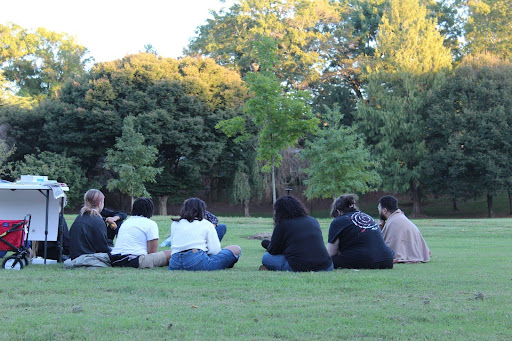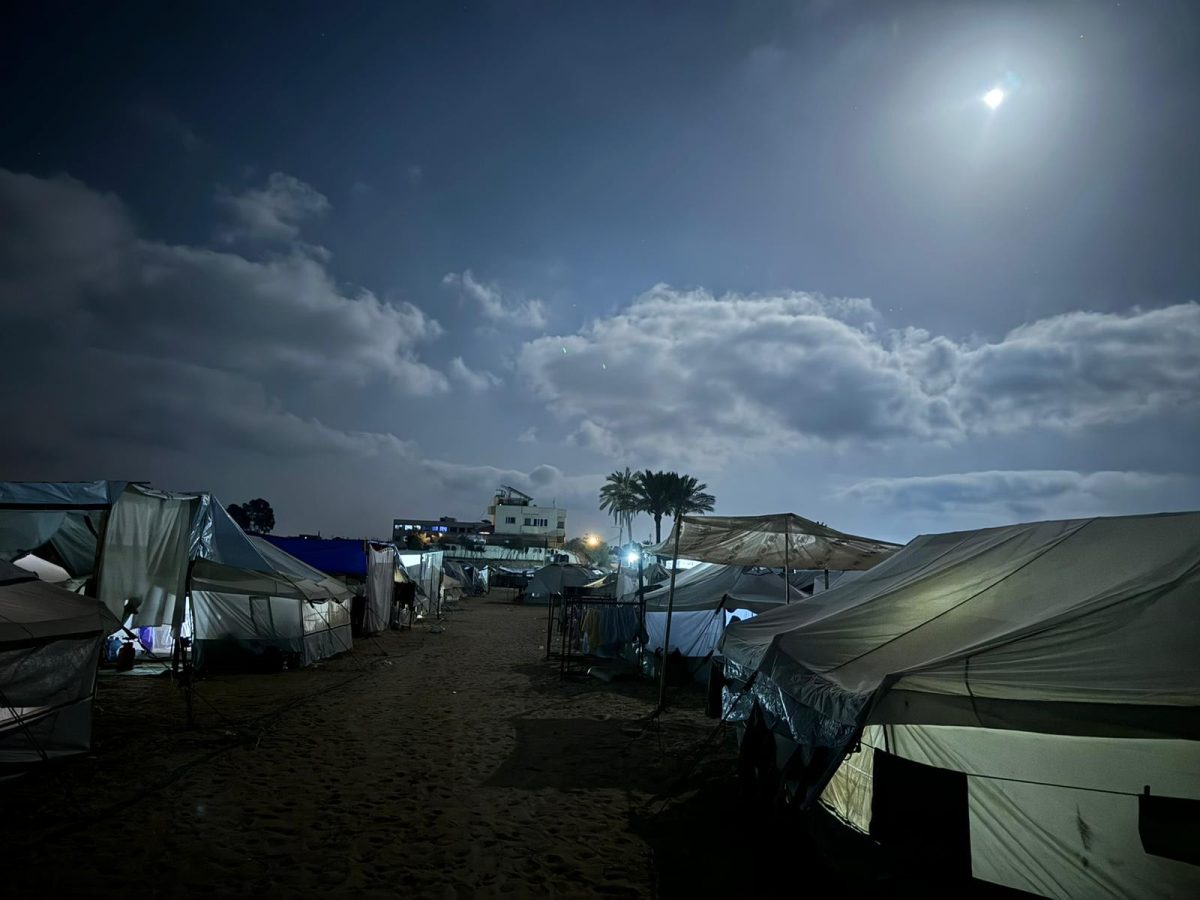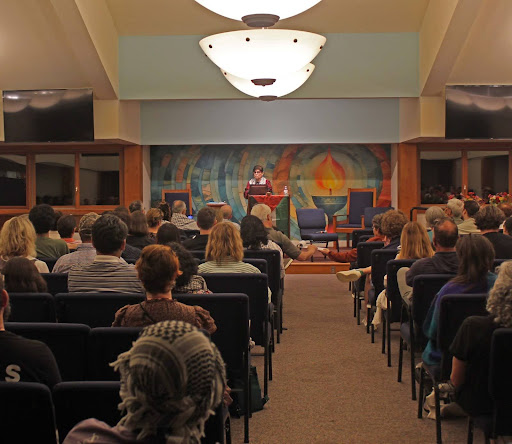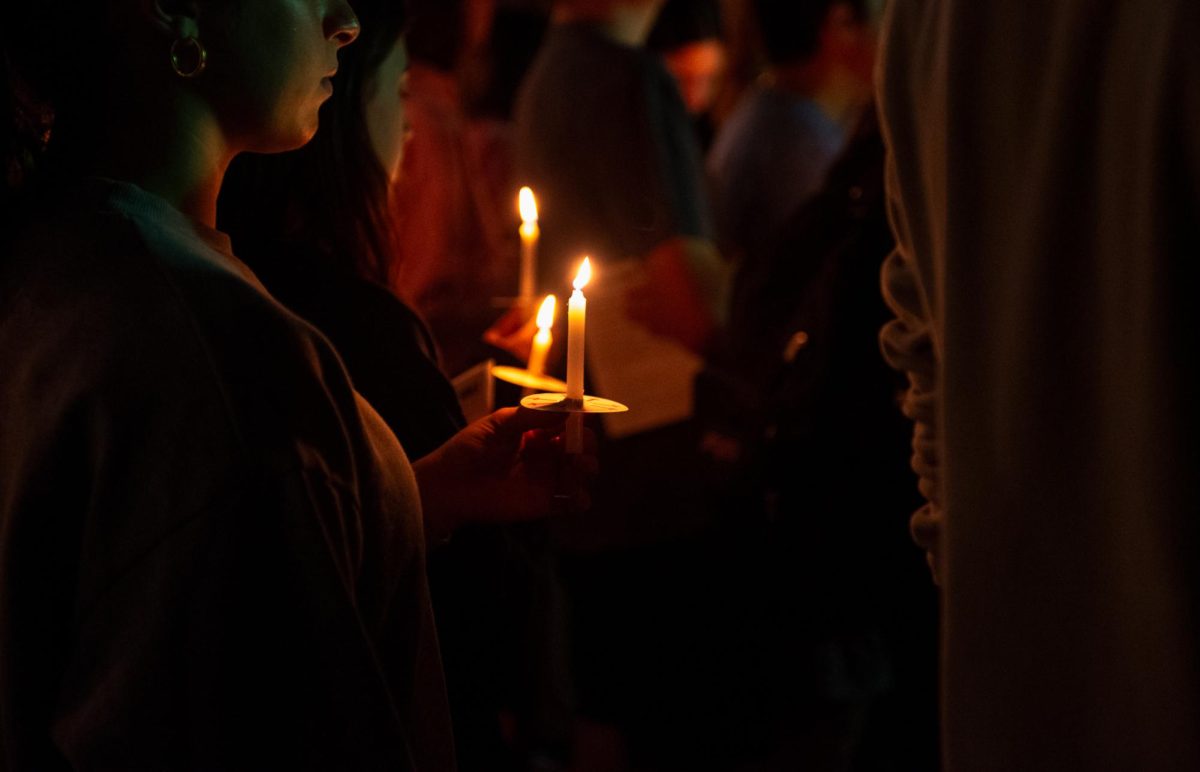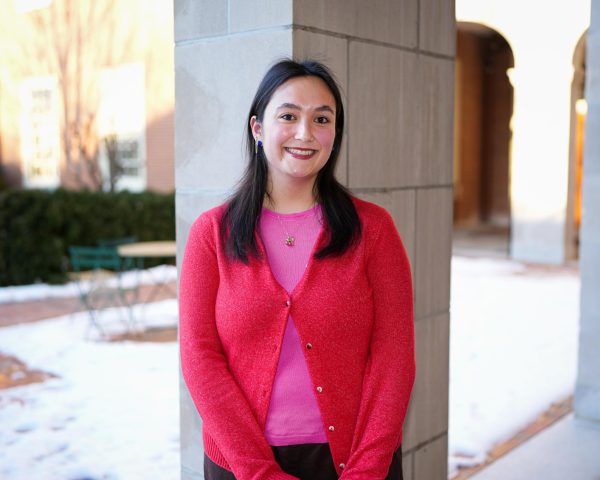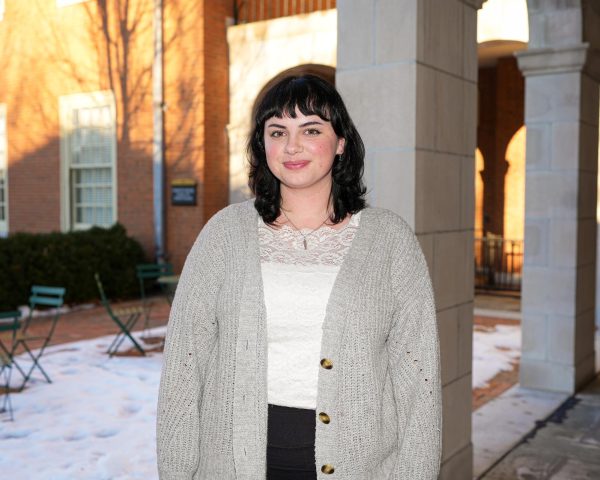Students and faculty placed candles, prayer mats and literature on Davis Field Thursday evening and Friday morning to commemorate the 41,500 Palestinians who have died as a result of the ongoing Israel-Hamas war.
The vigil was held over two days: Thursday, Oct. 10 from 5 p.m. to 8 p.m. and Friday, Oct. 11 from 8 a.m. to 10 a.m. Approximately ten students attended the first part of the vigil, and two students attended the second part. During the event, the University set up a roped border and blocked off the road alongside the field and University administrators supervised the event.
WFU Students for a Free Palestine, a pro-Palestine student organizing group, held the event. In May 2024, the group was met with pushback from the University after a protest that evolved into an encampment was held on campus.
In August 2024, the University released a document detailing the policy on demonstrations, chalking and posting. While this event was set up as a vigil, students still worked within the framework laid out in the policy to create this event. A summary of the policy can be found here.
On Thursday evening, the Old Gold & Black approached the attendees requesting an interview. Two students agreed to an interview. After the interview, the Old Gold and Black confirmed that one of these students provided a false name.
Organizers of the event originally wanted to hold the event on Oct. 7 on the front steps of Wait Chapel, according to sophomore and participant Destiny Hale. However, the organizers were not permitted to hold the event on Hearn Plaza and a later date was suggested. Hearn Plaza is not an area that can be reserved by students on Deacon Space, a portal where students and student organizations can reserve space for meetings and events.
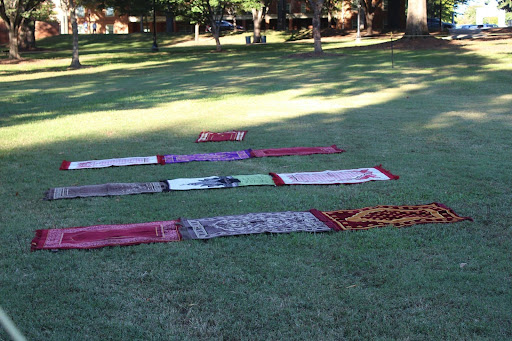
The University offered the vigil to be held on Manchester Plaza, but due to safety concerns, the organizers declined the offer.
The first day of the vigil included lit candles, a table with literature and three speakers — two of which were students, and one speech from Assistant Chaplain for Muslim Life Imran Haq. Music was also played from a nearby speaker. All three speeches were not audible from outside the roped area, of which the Old Gold & Black did not enter because only participants were allowed inside. The Old Gold & Black reached out to the Office of the Chaplain but did not receive a copy of Haq’s speech.
After the speeches, attendees sat in a circle and were invited to share any emotions they were experiencing. In a statement via email, Haq said the event was intended to acknowledge students’ grief, pain and frustration.
“The message of my speech is that as we grieve and mourn an incalculable loss, we must also call for justice,” Haq said. “That no single speech or event can ever capture the loss of life that we are seeing in Palestine, as even a single life lost can destroy whole communities with grief, but we must continue to speak.”
He continued: “We continue to speak for those who can no longer speak. We call and move for justice, because it is the right thing to do as human beings. Because if we do not continue to move with, for and in justice, we are threatened to be overtaken by overwhelming despair and hopelessness. But we must not give into hopelessness, as every day Palestinians do not give in. Together we can imagine a better future — one where children are able to grow up in safety, security and abundance.”
The next morning, organizers told the Old Gold & Black they would host a Moravian-inspired Lovefeast, with a speaker present. In the morning, three individuals participated in the Lovefeast, while school administrators and staff supervised nearby in lawn chairs.
Hale said the event was intended to be an interfaith event that combines Moravian and Christian traditions.
“We think that togetherness and collectivity was something very key to what we wanted to accomplish with our planning,” Hale said.
Haq said that the Chaplain’s office can be a resource for students experiencing grief or other emotions.
“I did not come to the vigil with any preconceived goals, other than honoring and mourning the lives of Palestinians,” Haq said. “I come from a background of grief work and processing grief, and so at least for my speech, I asked the students to sit around in a circle as I read my speech, and then invited the students in some reflection and emotional processing. I suppose at that moment, I wanted to add my own brand of pastoral care into the vigil.”



